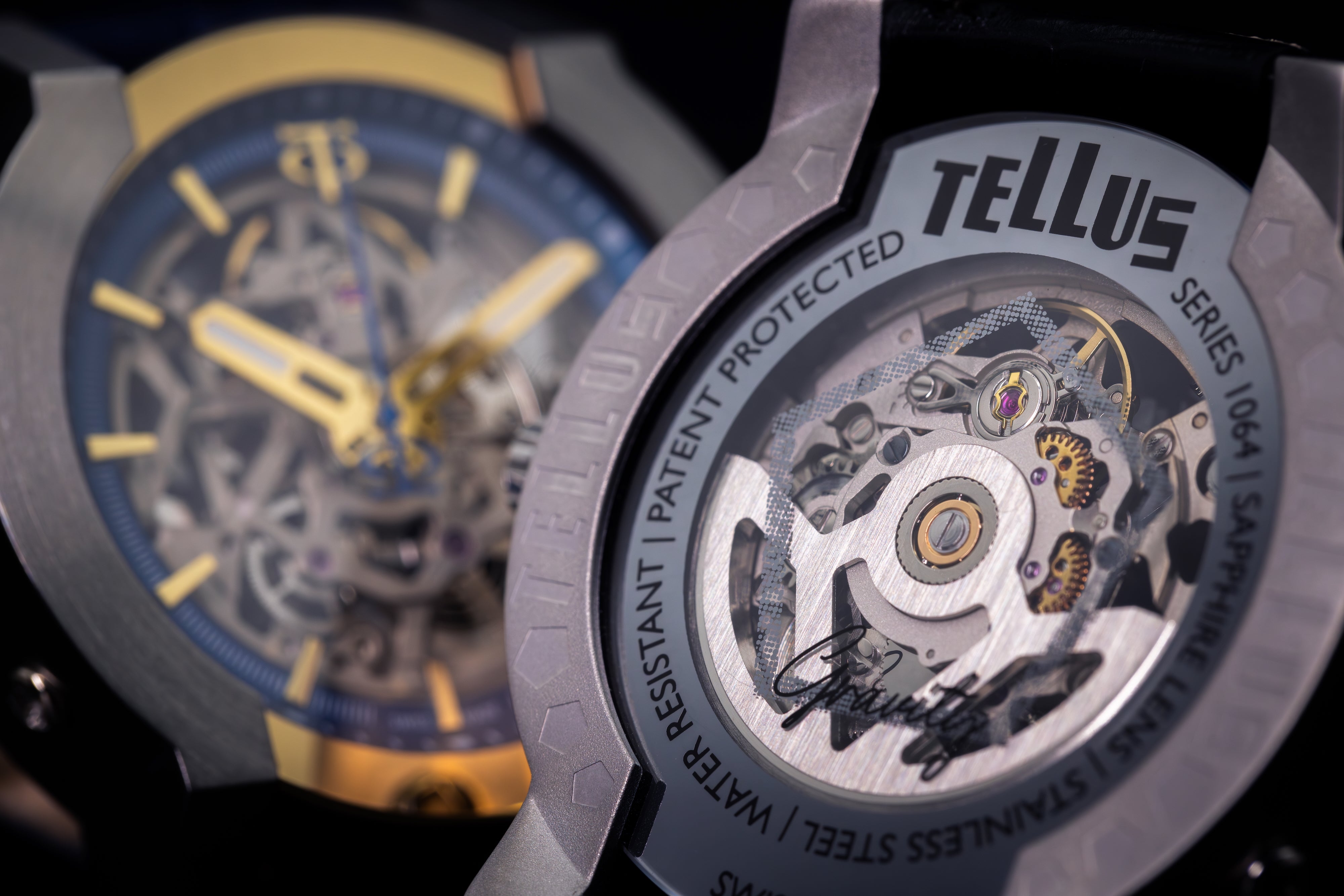What Are the Differences Between a Mechanical and Automatic Watch
When choosing a watch, we often focus on design, materials, and finishing. But behind the dial, an essential element determines everyday usage: the type of movement.
Mechanical or automatic—the difference is technical, but it also influences the gesture, the relationship with time, and sometimes even the attachment to the piece.
At Maison Tellus, we offer both options. Not to tick a box, but because the movement is part of a watch's identity. It deserves to be understood, to be chosen with precision.
What Does the Movement Say: Mechanical or Automatic?
A mechanical watch is about the pleasure of gesture. That precise and regular motion of winding the crown to breathe energy into a carefully assembled set of gears. Inside, nothing electronic. Just the power of the spring, the finesse of the balance wheel, the horological breath transmitted by hand.
You don't wear a mechanical watch to save time. You wear it to take time.
An automatic watch comes alive with you. Each movement of the wrist recharges its energy, thanks to an oscillating mass. It becomes an accomplice to your gestures, autonomous without being distant. Fewer rituals, but the same mechanical nobility.
The choice between these two movements isn't about performance. It's about sensation. And sometimes, about mood.
Essential Differences, Explained with Simplicity
At first glance, mechanical and automatic watches share the same soul: no battery, no electronic components, just the intelligence of a 100% mechanical horological movement. But their differences, though discrete, create two singular experiences.
The mechanical watch requires regular manual winding. A gesture that some find soothing, almost ritualistic. This daily connection creates an intimate relationship with the object: you recharge it as you recharge yourself, in a form of self-attention. Some wind their watch completely once a day, like a ritual; others give a few turns of the crown throughout the day.
With an automatic watch, you don't need to think about winding it—just wear it. Thanks to the natural movement of the wrist, it adapts to your rhythm. It offers more practicality, sometimes more power reserve, but also a sensation of constant movement, of discreet presence at the wrist.
And then there are the details:
- The autonomy duration, often slightly superior on modern automatics
- The wearing sensation: a manual mechanical can be slightly thinner, an automatic denser
- The maintenance complexity, slightly different depending on the movement type
- And of course, the view of the case back: seeing a movement beat, the oscillating mass moving—it's also a way to appreciate time differently
At Tellus, Choosing the Movement Means Writing Your Own Rhythm
At Maison Tellus, we offer the choice between these two movement types because time isn't lived the same way for everyone. Some will seek the regularity of a gesture, the connection to the daily ritual of manual winding. Others will prefer the discreet fluidity of automatic energy that recharges throughout the days. One invites attention. The other accompanies movement.
Our collections translate this plurality: → The Ares range, with design inspired by our first watches from 1926, evokes the sober elegance of Swiss mechanical movements with small seconds → The Discoverer or Dueller models, designed to accompany modern explorations, integrate Swiss automatic movements renowned for their precision and reliability
FAQ
What is an automatic watch?
An automatic watch is a timepiece equipped with a mechanical movement capable of recharging itself through wrist movements. It contains no battery. Its heart beats thanks to a mainspring, wound automatically by an ingenious mechanism: the rotor—an oscillating mass that pivots with each wrist movement. Result: the watch continues to function as long as it's worn and can have a power reserve of several dozen hours. At Maison Tellus, Swiss automatic calibers are chosen for their reliability, finesse, and endurance, offered on several emblematic models in respect of Swiss horological tradition.
What are the advantages of automatic watches?
Automatic watches seduce through their durability, precision, and energy independence: no battery is necessary. Their refined aesthetics and visible mechanism (via a transparent case back) testify to precious horological know-how. They're also pieces that embody a form of living tradition: that of an object that functions in harmony with its wearer.
What is the best automatic watch?
There's no universally "best" automatic watch—only the one that corresponds to you. Certain brands like Breguet, Patek Philippe, Jaeger-LeCoultre, Omega, Longines, TAG Heuer, Rolex, or Audemars Piguet have marked the sector's history. But Maison Tellus offers an independent alternative: high-end models, customizable, manufactured in limited series, combining technical rigor, aesthetics, and rarity. True luxury is being able to choose.
Where to buy an automatic watch?
A Tellus automatic watch can be purchased directly online via our official website, or in our private showroom in Paris, located in the heart of the 7th arrondissement. Our pieces are available by appointment, with a unique personalization offer, secure delivery, and dedicated support. You're not buying a watch: you're entering a Maison.
How to maintain an automatic watch?
Like any precision mechanism, an automatic watch requires regular maintenance. It's recommended to have your watch serviced every 4 to 5 years, and to have it checked in case of shock or loss of autonomy. An authorized Tellus watchmaker can control lubrication, regulation, or potential micro-wear. This care contributes to your piece's durability. Our Club Tellus member clients benefit from priority access to maintenance and repair services.
What is the history of automatic watches?
The history of automatic watches begins in the 18th century, with the first attempts at horological mechanism evolution. But it's in the 20th century that automatic winding establishes itself, notably with Swiss innovations. This technical development accompanies the rise of precision horology, where the watch becomes both a measuring tool and a symbol of refinement. Maison Tellus, faithful to this heritage, proposes creations that perpetuate this mechanical tradition while breathing contemporary life into it.





Leave a comment
This site is protected by hCaptcha and the hCaptcha Privacy Policy and Terms of Service apply.